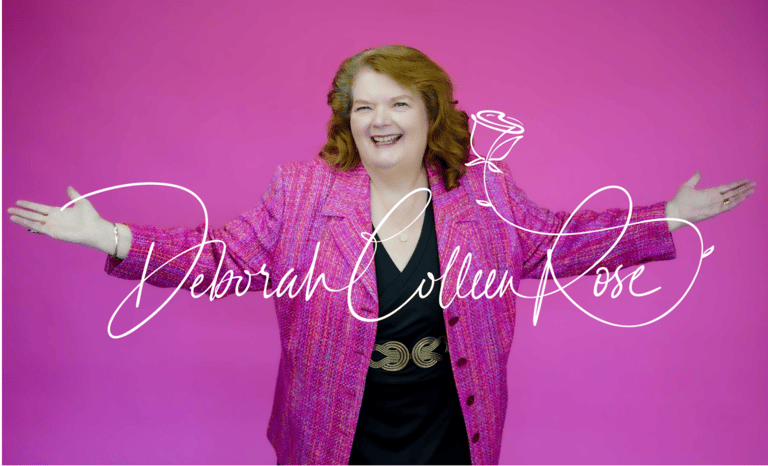Unlocking the Power of Intuition: What It Really Means and How It Works
SPIRITUAL GROWTH
Deborah Colleen Rose
1/7/20256 min read


We’ve all had those moments when something just clicks—when you suddenly know something without any clear reason behind it. Maybe you feel like you should take a different route home or get a strong sense that something’s off, even if nothing’s really changed. That’s your intuition at work. It’s that quiet, inner knowing that often guides us, and while it might seem mysterious or even a bit irrational at times, it’s something we’ve been relying on for thousands of years.
Intuition isn’t magic or some supernatural power—it’s a natural part of being human. It’s how our brain processes tons of information behind the scenes, often leading us to insights or decisions before we’re consciously aware of them. And even though we’ve evolved to rely on reason and logic, intuition can be just as valuable, helping us navigate life in ways that we might not fully understand.
What is Intuition?
At its core, intuition is a feeling or a sense about something that arises without a lot of conscious thought. It’s that hunch you get, that gut feeling that nudges you toward a decision or warns you away from a situation. Sometimes, it comes with a sense of urgency, like when you’re walking down a familiar street and suddenly get the feeling something isn’t right. Other times, it’s a quiet, calm knowing that simply feels true even if you can't explain why.
There’s often no emotional drama attached to these moments of intuition, just a still, confident knowing. It’s like when you’ve just “got a sense” that something will happen, or you make a choice based on an inner certainty that doesn’t come from logic or experience. It’s as if you’re tapping into something deeper, a quiet wisdom that’s been accumulating for years, without you even realizing it.
Intuition vs. Body Memory and Spiritual Knowing
One way to understand intuition is by looking at the difference between body memory and spiritual knowing. Both can feel like intuition, but they come from different places.
Body memory is essentially the knowledge that your body has absorbed from past experiences. It’s not something you consciously think about, but your body holds onto it anyway. Imagine walking into a room and immediately sensing that something’s off—your body might tense up, your heart rate might quicken, or you might feel a subtle unease. You may not have consciously recognized why, but your body remembers past experiences that it has linked to similar situations. This kind of intuitive response is often tied to your brain’s unconscious pattern recognition—your body has experienced certain triggers before, and now it reacts before you even realize why.
For example, if you’ve been in a dangerous situation before—like an accident or a threatening encounter—your body can “remember” that experience through muscle tension, heightened alertness, or even a feeling of dread. This form of intuition can feel very physical and might not be something you consciously think through. Your body is simply recalling past information to keep you safe.
On the other hand, spiritual knowing is something more intangible. For many people, it’s the sense that there’s a deeper, almost divine, guidance at play. Spiritual intuition might manifest as a quiet voice in your mind that’s telling you the right path to take, or a sense that something is meant to happen or unfold in a particular way. This type of knowing doesn’t come from experience or memory—it feels more like a spiritual insight or a connection to something beyond yourself. It’s often described as a still, small voice within, a sense of peace that reassures you even in uncertain times.
Spiritual knowing can be an incredibly powerful form of intuition, but it’s also more abstract and subjective. For some, it may feel like guidance from a higher power, while for others, it’s simply the feeling of being in tune with the universe or the greater flow of life. Either way, it’s a type of knowing that goes beyond what the rational mind can explain.
The Power of Unconscious Awareness
Most of the time, intuition works silently in the background. We experience more information than we’re aware of on a conscious level. Our brains are constantly processing data, observing things that we may not actively notice, like subtle changes in a person’s behavior or the way a room feels. These pieces of information are categorized and stored away, often without us even realizing it.
But sometimes, when that stored information becomes important or relevant, it pushes to the surface of our awareness. You might suddenly feel the urge to check the lock on your back door, even though you don’t remember consciously noticing it was left unlocked. Or you may sense that a friend needs support, even though they haven’t said anything. It’s your brain’s way of connecting the dots between the unconscious information it’s gathered and the situation at hand.
This type of unconscious processing is part of why intuition feels so effortless. Your brain is constantly working in the background, picking up patterns, and then presenting you with conclusions when you need them. It’s like your brain is doing the heavy lifting, while you just receive the final answer without needing to actively think about it.
Trusting Your Intuition: How Experience Shapes It
One of the reasons intuition is so reliable is that it’s based on experience and learning. The more we go through life, the more we accumulate knowledge—both consciously and unconsciously. This is why we can develop a strong intuitive sense about things we’ve encountered many times before.
For example, a friend of mine who worked as a TV editor had a gut feeling one day when she was presented with two sets of data from a company that had been notoriously late in the past. Her boss told her to go with the second set, but her intuition told her the first set was correct. She couldn’t explain why, but she was right—the second set was wrong, and they ended up having to reprint the entire section. Her intuition came from years of experience working with that company and recognizing the subtle signs of when they might deliver data early, even though the company was known for delays.
This is how intuition works with experience—it’s not magical or random. It’s a deep understanding that your brain builds up over time, allowing you to recognize patterns and make decisions based on what you’ve learned, even if you don’t consciously realize you know it.
How Past Experiences Can Distort Intuition
However, while intuition is often reliable, it’s not immune to distortion. Our past experiences and emotional filters can sometimes cloud our intuitive judgment. When we rely too heavily on past experiences or let our biases and emotions guide us, we risk mistaking our intuition for something else entirely.
For instance, if you’ve been hurt in the past by a certain type of person—say, someone who reminds you of an ex-partner—you might get an intuitive sense that a new acquaintance is “wrong” or untrustworthy, even though there’s no logical reason for it. Your intuition might be picking up on patterns from the past that are affecting how you perceive this new person, even though they may not be the same at all.
Similarly, if you’ve had a past negative experience in a particular situation, like a stressful event at work, you might feel uneasy when similar circumstances arise, even if the situation is completely different. Your intuition could be trying to protect you, but it’s also influenced by the emotional baggage and expectations tied to those past experiences. This is why it's important to differentiate between intuition and the emotional baggage or filters that might distort it.
Spiritual Intuition: Listening to the Quiet Voice Inside
While body memory and experience-driven intuition are based on practical, tangible knowledge, some people also experience a more spiritual form of intuition. For those who believe in spiritual guidance, intuition can feel like a whisper from a higher power or a sense of deep connection to the universe. This type of knowing doesn’t come from personal experience or memories but feels more like a truth that is revealed from a place beyond the self.
Spiritual intuition often shows up as a sense of peace in the midst of uncertainty or an inexplicable pull toward something—or someone—that feels right. For example, you might meet someone for the first time and feel an instant connection, as if you’ve known them forever. Or you might suddenly have a sense that a specific event is going to unfold in a positive way, even without any logical reason to believe so. These moments can be attributed to what some people call spiritual intuition: a sense that we are guided or connected to something larger than ourselves.
Why It’s Worth Trusting Your Intuition
Intuition, in all its forms—whether body memory, spiritual knowing, or unconscious pattern recognition—has real power. While it’s easy to dismiss intuition as unreliable, especially in a world that values logic and facts, it’s an invaluable tool for navigating the unknown. Trusting your intuition can help you make decisions when logic and reason don’t have the answers.
The key is learning to listen and paying attention to the subtle nudges your mind and body give you. While it’s important to acknowledge the influence of past experiences and emotional filters, developing awareness of these influences can help you separate them from true intuitive wisdom. Whether it’s that quiet, emotion-free certainty that something is right, or that gentle push to take action, intuition is a guide you can rely on—especially when you need it the most.
